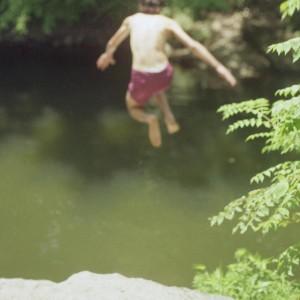Emo was on a vacation from critical relevance until sometime in 2012, when Sunny Day Real Estate’s residual mid ‘90s angst took corporeal form. The mouthful of a band that is The World Is A Beautiful Place & I Am No Longer Afraid To Die seem to take more cues from the chamber-inclined Ra Ra Riot or even Broken Social Scene than they do from acts more typical to their genre (is Fall Out Boy an appropriate reference here?), but there is no mistaking what kind of album Whenever, If Ever is. What it is not is the kind of album that you, the educated indie listener, will enjoy if you don’t open yourself up towards music that skews early-aughts conventional. The reward for taking a more liberal stance? An album with emotional authenticity that also acts as a studied exploration of various mainstream indie tropes.

The brass introduction to “Fightboat” is, for example, reminiscent of pseudo-ska acts like Cake (particularly the Mission Hill theme song) but the song’s middle school scrawny guitar parts and Boy Least Likely To synth lines give it a more nascent slant. It’s a collage, but it’s one that has no trouble defining itself and never masks its inclinations under faux “experimentation” (I’m looking at you, entire music industry circa 2013). There is something about hearing post-pop emo songs like these presented with an almost DIY aesthetic that lends a credence and authenticity to emo I was never willing to give it credit for. When I hear “Picture Of A Tree That Doesn’t Look Okay” I hear a song that would not have such emotional timbre if it were on an album by a more financially established and studio confident act.
As someone who was often confronted by but never really “got into” emo when I was a teenager, Whenever, If Ever is a musical fresh start for a genre I was unwilling to ever give a chance in anything but theoretical combinations (I’m still waiting for a band to label themselves “emo soul”). Whenever, If Ever is entry-level emo, and I mean that with the utmost respect; it swoops you under its wing with powerful allusions to familiar rock spectacles. I can hear traces of Sigur Ros in the emotional, horn-studded intro to “Ultimate Steve” before the song descends into sweet, juvenile madness. “Low Light Assembly” is fairly indicative of a general mid-aughts indie pedigree.
There are some genre-typical affectations on Whenever, If Ever that don’t go over so well. The screamo bridge of closing track “Getting Sodas,” for example, made me reach for a glass of water in tracheal sympathy. It also seems like some of the album’s best bits (the synthesizers, horns, and the guitar arpeggios) are relegated to the backend in favor of crowing vocals and typical drum parts. Still, for an album that hooks a little to the proverbial middle of what you, my faithful Audiocred reader, might be into, one could do a lot worse than Whenever, If Ever.

3.5/5 bars
